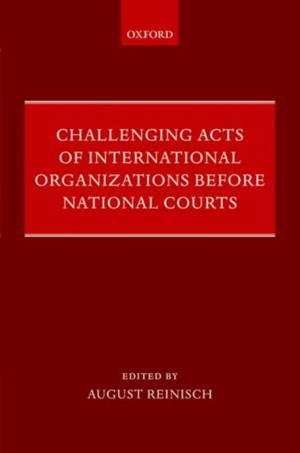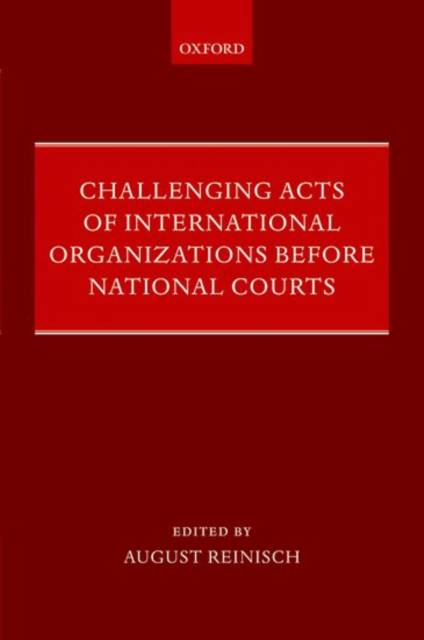
- Afhalen na 1 uur in een winkel met voorraad
- Gratis thuislevering in België vanaf € 30
- Ruim aanbod met 7 miljoen producten
- Afhalen na 1 uur in een winkel met voorraad
- Gratis thuislevering in België vanaf € 30
- Ruim aanbod met 7 miljoen producten
Zoeken
Challenging Acts of International Organizations Before National Courts
August Reinisch
Hardcover | Engels
€ 156,95
+ 313 punten
Omschrijving
As the Kadi-hype following the 2008 European Court of Justice judgment demonstrated, there are many problems associated with the judicial review of acts of international organizations. This book is the first to present a broader overview of how acts of international organizations have been challenged before national courts. It covers such diverse organizations as the United Nations, its subsidiary organs, such as the specialized international criminal courts for the former Yugoslavia and Rwanda, the European Patent Office, the European Schools, EUROCONTROL, OPEC, and INTERPOL. Building extensively on the case law of domestic courts, the chapters highlight reoccurring legal issues in light of four working hypotheses. These relate to the nature of judicial review of the acts of international organizations, its interdependence with domestic methods of incorporating international law, the conditions of a human rights-based review, and the tension between the independent functioning of an organization and guaranteeing legal protection against its acts. This approach ensures consistency among the book's chapters, which each focus on a different organization. Its conclusion brings the different findings together and analyses them in the light of the working hypotheses. It also discusses whether attempts to secure a certain minimum level of legal protection against acts of international organizations through judicial review by national courts may contribute to securing greater accountability of international organizations.
Specificaties
Betrokkenen
- Auteur(s):
- Uitgeverij:
Inhoud
- Aantal bladzijden:
- 352
- Taal:
- Engels
Eigenschappen
- Productcode (EAN):
- 9780199595297
- Verschijningsdatum:
- 4/02/2011
- Uitvoering:
- Hardcover
- Formaat:
- Genaaid
- Afmetingen:
- 236 mm x 163 mm
- Gewicht:
- 657 g

Alleen bij Standaard Boekhandel
+ 313 punten op je klantenkaart van Standaard Boekhandel
Beoordelingen
We publiceren alleen reviews die voldoen aan de voorwaarden voor reviews. Bekijk onze voorwaarden voor reviews.











